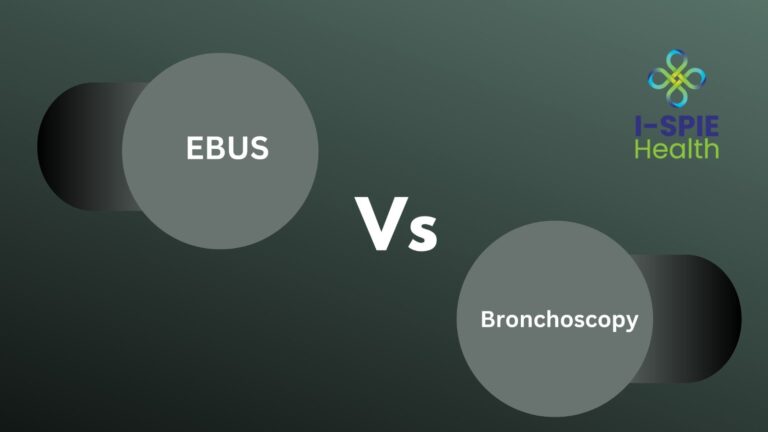Spiritual Care for Your Patient is a vital aspect of holistic healthcare. It addresses the emotional and spiritual needs of patients alongside their physical health. Spiritual well-being significantly impacts patient recovery and overall health, providing comfort, hope, and strength during illness. This blog aims to equip healthcare professionals with practical ways to offer spiritual care, enhancing the quality of life for their patients.
Top 10 Ways to Provide Spiritual Care to Your Patients
1. Understand the Patient’s Spiritual Needs
Recognizing and respecting diverse spiritual beliefs is crucial in providing personalized care. Healthcare professionals can assess a patient’s spiritual needs through questionnaires and open conversations. Understanding these needs helps in creating a care plan that aligns with the patient’s beliefs and values, fostering trust and comfort.
2. Create a Supportive Environment
A peaceful and comforting atmosphere can significantly enhance a patient’s spiritual well-being. This can be achieved by ensuring privacy, providing quiet spaces for reflection and prayer, and maintaining a calm and respectful environment. Such settings allow patients to engage in their spiritual practices and find solace.
3. Encourage Open Communication
Initiating conversations about spirituality requires sensitivity and empathy. Techniques such as active listening and asking open-ended questions can help patients express their spiritual concerns and needs. Healthcare providers should create a safe space for these discussions, showing genuine interest and respect for the patient’s spiritual journey.
4. Collaborate with Chaplains and Spiritual Care Providers
Chaplains and spiritual care providers play a crucial role in offering specialized spiritual support. Collaborating with these professionals ensures that patients receive comprehensive care that addresses their spiritual needs. Healthcare providers should facilitate referrals and work closely with chaplains to integrate spiritual care into the patient’s treatment plan.
5. Respect Cultural and Religious Practices
Cultural sensitivity is essential in respecting patients’ diverse spiritual practices. Healthcare providers should accommodate various religious rituals and customs, such as dietary restrictions, prayer times, and the use of spiritual objects. Providing culturally competent care helps in building a respectful and supportive relationship with patients.
6. Provide Spiritual Resources
Access to spiritual resources like prayer books, meditation guides, and religious texts can support patients in their spiritual practices. Healthcare providers should ensure these resources are readily available and cater to the diverse spiritual needs of their patients. Providing such materials can offer comfort and aid in spiritual healing.
7. Integrate Spiritual Care into Treatment Plans
Incorporating spiritual practices into medical treatments can enhance patient care. This holistic approach considers the patient’s spiritual beliefs as part of their overall well-being. Including practices like meditation, prayer, or spiritual counseling in treatment plans can improve mental health and aid in recovery.
8. Encourage Personal Spiritual Practices
Supporting patients in their spiritual routines can have a positive impact on their mental health and recovery. Encouraging practices like prayer, meditation, or mindfulness can help patients find peace and strength. Healthcare providers should respect and facilitate these practices as part of the patient’s daily routine.
9. Offer Emotional and Spiritual Support
Providing emotional support through reassurance and presence is integral to spiritual care. Addressing spiritual distress and offering comfort helps patients cope with their illness. Healthcare providers should be attentive and compassionate, providing a listening ear and empathetic support.
10. Provide End-of-Life Spiritual Care
End-of-life care requires special attention to spiritual needs. Supporting patients and their families during this time involves addressing fears, providing comfort, and facilitating spiritual practices. Healthcare providers should offer compassionate care that honors the patient’s spiritual beliefs and provides peace during their final moments.
Also Read: Unlock the benefits of a holistic approach to cancer care for complete healing.
Benefits of Spiritual Care for Patients
Improved Emotional Well-Being
- Reduces stress, anxiety, and depression, fostering a positive outlook.
Enhanced Recovery Rates
- Boosts resilience and physical health, promoting faster healing.
Better Pain Management
- Techniques like meditation and prayer help reduce pain perception.
Increased Patient Satisfaction
- Patients feel valued and understood, improving their healthcare experience.
Stronger Patient-Provider Relationships
- Builds trust and enhances communication and collaboration.
Reduced Feelings of Isolation
- Creates a sense of community and belonging, especially during long-term treatments.
Enhanced Coping Mechanisms
- Provides strength and resilience to handle illness challenges.
Need Spiritual Care for Your Patients?
Enhance your patients’ well-being with compassionate spiritual care. Learn how to provide support that nurtures the mind, body, and spirit.
Explore Spiritual Care Tips by Madhavi Parikh
Conclusion
Integrating spiritual care into healthcare practice enhances the overall well-being of patients, addressing their emotional and spiritual needs alongside physical health.
By understanding and respecting diverse spiritual beliefs, creating supportive environments, and collaborating with spiritual care providers, healthcare professionals can offer comprehensive care that significantly improves patient outcomes. Encouraging personal spiritual practices and providing end-of-life spiritual care further supports patients in their healing journey, fostering hope, comfort, and peace.
FAQ
How do you provide spiritual care to a patient?
- Understand and respect the patient’s spiritual beliefs and needs.
- Create a supportive and comforting environment.
- Encourage open communication about spirituality.
- Collaborate with chaplains and spiritual care providers.
- Provide spiritual resources and support personal spiritual practices.
- Integrate spiritual care into treatment plans.
What are the 7 spiritual needs of a patient?
- Meaning and purpose
- Love and belonging
- Forgiveness
- Hope
- Peace and serenity
- Connection to a higher power or faith community
- Personal strength and coping skills
What is spiritual care in hospital?
Spiritual care in a hospital involves addressing the spiritual needs of patients through compassionate listening, providing resources, supporting personal spiritual practices, and collaborating with chaplains and spiritual care providers to ensure holistic patient care.
Why is spirituality important for patient care?
Spirituality is important for patient care because it can enhance emotional well-being, provide comfort and hope, aid in coping with illness, improve the patient’s overall quality of life, and support holistic healing that includes the body, mind, and spirit.







